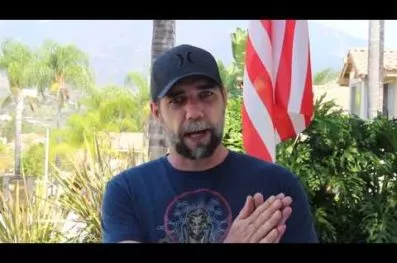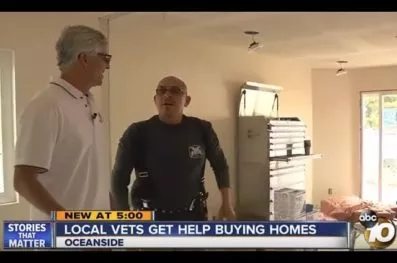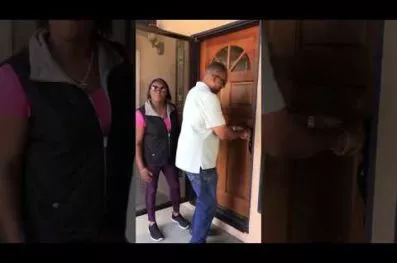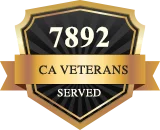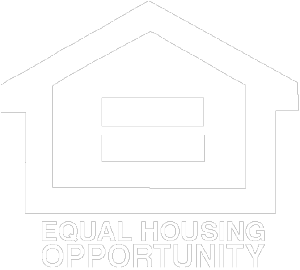Buy a BIGGER Lovely Home!

Va Loans
REAL ESTATE FOR VETERANS
How to Buy a BIGGER Lovely Home!
Important tactics to use when movin’ up and buying a bigger home using your VA Home Loan Benefit. How to use private lending to your advantage.

Peter Van Brady
Founder of SoCal VA Homes
Author: Avoiding Mistakes & Crushing Your Deals Using Your VA Loan
I’m sure you know that as active military or as a Veteran, you can sell your home and buy a bigger home and use your VA Home Loan Benefit for financing a second time. Putting all the moving parts together to accomplish this goal can be an overwhelming task. Let’s talk about all the mechanics – all the elements you must consider and implement to accomplish your goals.
Start by asking yourself, do you need to do anything to your current home to sell it? Many people feel like they do. Some absolutely need to, and some do not, depending on whether the home has recently been fully upgraded.
At SoCal VA Homes, we’ve certainly sold our fair share of homes over the years (well over a thousand,) and some of those homes were ready to put on the market from day one. Having a market-ready house is unusual – a bit of a rarity. It’s a good idea to ask someone who's qualified and knows the market about what needs to be done to the home to allow it to compete for a buyer’s attention. In a “hot market” with little supply, maybe you don’t have to do a thing to your home. If there are upgrades that need to be done, ask yourself if you can pay cash for the improvements or if you need to finance them? Of course your answer is a result of the cost of the upgrades and how much you can afford to spend.
If you need cash to make those home improvements, you might want to take a look at a VA cash-out loan. But be careful. You only want to consider a VA cash-out loan if you can eliminate all the costs. Why? Because you’re going to sell the home, and you don’t want to incur a higher loan balance if you can avoid it. How do you eliminate the costs? You’ll need to accept a higher than “market rate,” a “premium rate,” where the lender pays all the closing costs. It would help if you were exempt from the funding fee (by currently receiving disability benefits) when using a VA cash-out refinance to pay for your improvements to get the property ready for sale. That’s a big undertaking and it is also time consuming. To get the cash from a refinance takes 30 to 60 days, and it will take another 30 to 60 days, or longer, to do all the needed improvements.
As an option for a smaller makeover, you might consider a home equity line of credit. The home equity line of credit is typically the lower-cost option of any financing. You should be able to obtain a home equity line of credit for free at most of the major banks and credit unions. If you can't qualify for the home equity line, usually that's a matter of lack of equity. Of course you can think about installment payments to a home improvement finance company, but try to stay away from finance companies. They usually have very high rates and fees. They also can construct financing contracts which require all the interest, which would be charged in the contract’s entirety, be paid at payoff – essentially a prepayment fee.
Private Lending to Finance Upgrades
Our company SoCal VA Homes is a unique company that does things other companies do not or can not do. We offer private lending to select clients. This is a loan out of our pocket, from our coffers to you, as a courtesy above all else. We can use our money to prepare your property for sale. Under such a circumstance, we would take on the listing, market the property for sale, and help you achieve your purchase goals as well. We consider private loans to clients for moderate sums in the range of less than $50,000. Why is it a “courtesy” to put so much of our cash out on the line? We take risks that no other company would, for returns on our capital that investors would laugh at and call us foolish! However, in this circumstance, we want to make sure that we're doing the right things to make your property marketable. We must oversee all aspects of property grooming, because again, we might be taking some extraordinary risks with our capital that others who lend money would consider just plain foolish!
Again, no one else would ever make such a private loan. We might, because we know you as a client, know your objectives, know the house, and we know what the house is going to sell for. We can guess the worst-case scenarios regarding the time it will take to sell your property and at what price. So literally, we're willing to make our own funds available for you to spruce up your property, if you can't find other adequate financing to accomplish the things necessary to sell the home.
The Moving Parts to Moving Up
When moving up to a larger home, you’ll probably have to put the cart before the horse, which means getting qualified for that new home purchase first. And getting qualified means that there are number of things that need to be examined, primarily, equity, credit, income, and VA loan limits. Here’s a quick overview:
Equity is the amount that you’ll put down, if any, on the new home. Typical move-up buyers sell their current home, and then they receive the net cash proceeds as funds available for a down payment on the next home. In this circumstance, the buyer has a choice to make. If 100% financing is available (to the loan amount desired), should they use these funds for their home purchase? At the time of this writing, rates are extraordinarily inexpensive. There are VA jumbo rates (amounts greater than $417,000) lower than 4.00%! I advocate borrowing more at cheap rates, not less, but I also advocate realistic budgeting, living within your means, and optimizing the opportunity costs of your cash. For example, if you can get $100,000 in net proceeds from your sale, and you don't need all that for your down payment, and you're wondering what to do with it, you might want to consider investing $75,000 from the sale and using $25,000 for the down payment. You don't have to take all the net proceeds from the sale of your home and commit it to the new purchase. And I encourage you to seriously consider whether you should or should not be doing that. Therefore, as it relates to qualifying for the new home, you’ll want to examine the equity component. Is making a down payment necessary or unnecessary to accomplish your goals?
Credit: Take a new look at your “mortgage credit report” with three “mortgage” scores. Don’t gage your credit entirely by viewing “consumer” scores, especially not just one score! Make sure that your credit allows you to qualify for the financing you’ll need to accomplish your goals.
Income: Have a qualified VA loan professional review your income and debt ratios to determine your highest loan amount you can qualify for. Get pre-approved for your new purchase. This process must consider the inclusion of your current housing expenses if you don’t intend to sell your current home.
Loan limits: Currently, there are “high-cost” loan limits in excess of $417,000 that allow you to finance 100% of the purchase price in more expensive markets. But because these loan limits are ever changing, consult your loan professional for current high-cost county limits to determine if those high-cost county limits do or don't adequately provide enough financing for your maximum purchase price. If the loan limit falls short in any county, the VA will require that you contribute a 25% down payment between the purchase price of the property and the loan limit.
So… first determine that:
-
You can sell your home at the right price and yield an acceptable amount in net proceeds.
-
Your income and credit all are acceptable, qualifying you for your desired loan amount.
-
The loan limits exist to allow you to finance the new loan amount you want...
Your VA Entitlement
Coming Full Circle: Ready To Sell
Once you get all those qualifying pieces together and have made sure the mechanics and the logistics work, then you have to learn what kind of “market” you are currently in. You also need to know what kind of market conditions exist in your new target location. Is it balanced? Soft? Hot? Are there lots of homes for sale (more than a six month supply?) What’s really going on? What’s it going to take to sell your house and buy another?
The ideal strategy is to sell your home first and be flexible about the timing and circumstances of your move to your ultimate destination. Why is that ideal? That might sound like anything but ideal! Yet, from a negotiating standpoint, selling first and being patient on your purchase produces the optimal results in most markets.
Let's say you plan to sell your house and it's in the condition you think it ought to be in to sell, but you haven't listed it yet. And low and behold, you find a new house you’d like to make an offer on! Now, you’re about to engage in two transactions at once - the purchase of the new home and the sale of your current home. If you're trying to do two transactions at once - buying first and trying to sell second, you're coming from a weaker negotiating position on both transactions--you don't want to do that!
In this scenario, you’ll likely make a contingent offer to purchase the new home. And the seller may have multiple offers, so they’ll balk at your “VA contingent offer to purchase.” No seller is going to give you the time of day in anything but the “softest” of all real estate markets – a market where few buyers exist and many sellers. Why? Because sellers (and the realtors) want buyers who are prepared to close ASAP! Sellers view the home that you have to sell first as your anchor, holding you back from closing. Agents will also caution their sellers regarding all the other drawbacks associated with a VA transaction. Again, these may include stringent appraisals, slower closing time frames, much smaller good faith deposits, etc. Most sellers don't even want to bother with a VA contingent offer.
In this circumstance, when you make an offer on that house you really want, you're only REAL leverage is price. You’ll be inclined to pay a higher price in an effort to make your VA offer stand out. Then, if you have to sell your home in order to buy, you'll be more inclined to accept less on the home you're selling. No one wants to take less on the home they're selling and pay more for the home they're buying. Naturally, you want to do just the opposite.
So, how do you approach your “move UP” in the most strategic manner? You accomplish your home improvements, list, and sell your home first. With this sequence, you're in the strongest negotiating position when you're selling your home, because in the eyes of your buyer, you don’t HAVE to sell! Then, when your current home is sold AND CLOSED (and hopefully a sizable down payment in the bank,) you’ll make your strongest offer to purchase, not a contingent offer. With this strategy, you’ll be in the most advantageous position, putting your best foot forward in both transactions. Yes, I know it can be a logistics hassle - storage, temporary housing, two moves, not one - but it can definitely be worth the financial benefits.
If you truly can’t sell your house first, there are two scenarios where buying your new home first and then selling your current home might work. This may be logistically more pleasing to you and your family. These scenarios may work in a super-hot seller's market where you own a very attractive property. Because you're a VA buyer and don’t need a down payment, you can sometimes afford to pay a little bit more than other buyers (who need to make a down payment) can afford to pay. It’s a case by case scenario, but when VA offers are accepted, I can almost guarantee it's because they were offering the highest price. Because there are so many disadvantages, as a seller, when accepting a VA offer, the seller may tolerate the disadvantages because they wish to support a Veteran who served. But the bottom line is, the seller wants the highest price. That's typically why they accept a VA offer. If you're in that rare position where your VA offer is accepted on your purchase, and you've got a current home that's really attractive, in great condition, and can sell fast because it's a seller's market, go back and list your property at the right price. You can probably get it in escrow to sell within a week. That’s one scenario where it may actually work for you.
The other scenario is a bit like waving a magic wand! SoCal VA Homes has developed and utilizes a proprietary purchase process called The Dreamweaver Home Purchase. In this circumstance, we actually buy a home (to renovate) for you, by paying cash to the seller. Obviously this is a “non-contingent” offer to purchase – it’s a CASH offer on your behalf. We then close on the home and renovate it to your CUSTOM specifications. You then buy the home from us for zero down and zero closing costs using your VA Home Loan Benefit. In this scenario, you are afforded the luxury of time and control, as we assist in the sale of your current home. This scenario IS the dream scenario. And we CAN make it a reality for you, as we have for other men and women who have served.
For assistance with all strategic considerations regarding moving up to a larger home, let SoCal VA Homes help. Call us at 949-268-7742.
As Seen on ABC 10 5:00 O’Clock News


